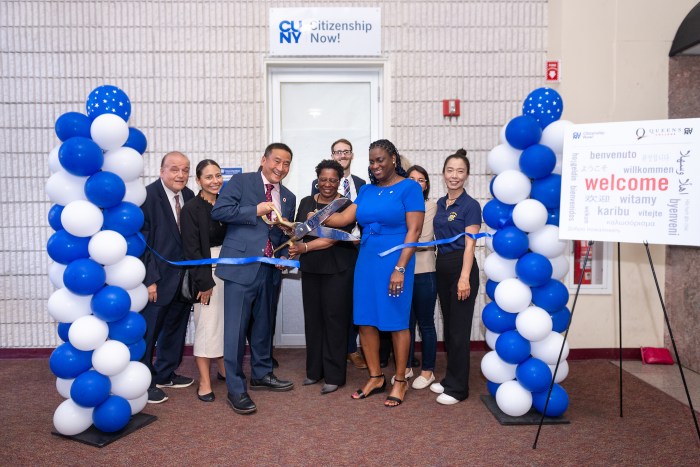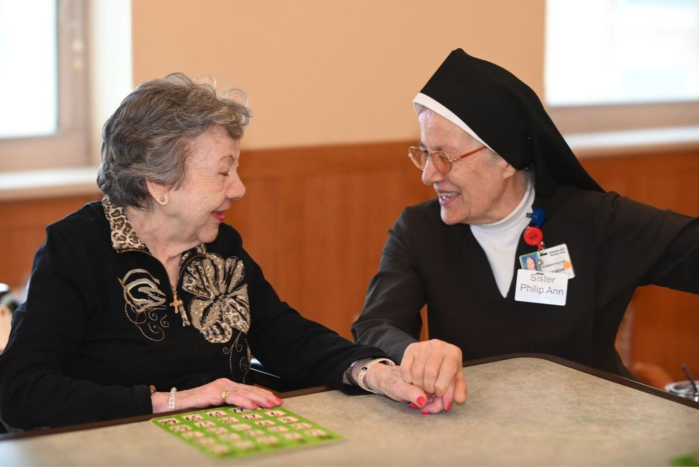The long awaited restoration of Flushing’s Bowne House is finally underway. Built in the 17th century by John Bowne himself, it has stood the test of time as a symbol of religious and cultural tolerance.
The trustees of the Bowne House Historical Society held a breakfast on Friday, September 7 in the garden of the historic house, to unveil plans for its restoration and construction of a new Visitor Center at the site.
Among the 40 present at the unveiling were Queens Borough President Helen Marshall, City Councilmember John Liu, Assemblymember Ellen Young, Senator Frank Padavan, business leaders and other government officials.
Bowne emigrated from England to Boston in 1649 and settled in Flushing when it was a small town. His family prospered in the United States and nine generations of the Parsons and Bowne family have produced businessmen, horticulturalists, educators and politicians. He is known for defending religious freedom in 1662, and his actions later helped to establish principles included in the Bill of Rights.
The oldest house in Queens, Bowne House was converted to a museum in 1947. “The [renovation] itself will take an estimated 2 1/2 years to complete but we plan on using the Visitor Center in the meantime to welcome visitors, showcase exhibits, have lectures, and allow students and others to conduct research about the history of Flushing,” said Donna Cartelli, Executive Director of Bowne House.
According to Cartelli, Bowne House has established a relationship with the Historic House Trust of New York City. Transferring care of the house to the trust will allow them to receive government funding. Liu and Marshall have agreed to assist in funding the project contingent on the House’s ability to raise $200,000 towards the endowment.
To help protect the delicate artifacts in the house, special restoration architects and construction workers trained in handling historical items have been hired. A separate architectural firm has been hired to build the visitor center.
Cartelli hopes that Bowne House will continue to represent a shrine to religious and cultural tolerance, “It is a part of our mission to continue a tradition that served the 17th century and can now serve the 21st.”

































